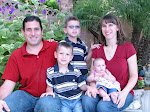However with all that said, it bothers me that I have never read the Bible cover to cover (which is way more important than those other books I like to read). So, I decided on a new strategy; I would read nothing else but the Bible for four months. If I read nine chapters a day, then I will finish the Bible in that time period instead of a year. I started on January 5th and so far so good. I finished the Pentateuch yesterday. It has really been an eye-opening experience to read so much of the Bible at such a rapid pace. You may lose the ability to dwell on details, but you gain something in regards to the connected themes of the Bible.
I read Genesis through Leviticus before taking a break from the Pentateuch to read Mark. It was amazing to experience just how different reading the teachings and actions of Jesus was compared to reading the Pentateuch. Though much more interesting, I could not read Mark as fast. The words of Jesus "give us pause" to quote a good friend.
There is a lot of fascinating material in the Pentateuch, but I confess that there are a lot of things that bother me. Let's be honest; they probably bother you too. I don't feel like men and women are treated equally or even valued equally under the Mosaic Law, but I will leave that topic for another day. I will only add that yes it is true that the Law of Moses was much more considerate of women than other Ancient Near Eastern law codes, but that doesn't necessarily explain away all the inequalities between men and women under the Law of Moses.
Yet, what is truly bothersome is the frequent command to either stone or burn or otherwise cut off from his or her people those foolish enough to transgress God's law. To be sure, God differentiates between those that simply make a mistake (unintentional sin) and those that willingly transgress. Still, there is death for those who blaspheme, takes the name of God in vain, worship idols, practice sorcery, divination, witchcraft, rebels against their parents, desecrates the Sabbath, commits adultery, etc. All of this threat of death reminds me of growing up with the threat of hell constantly proclaimed and seared into our consciousness.
Late we see the flaws in such an approach. We find ourselves far more motivated by grace and the love of God than threat of punishment, and indeed this seems to be a consistent emphasis in the New Testament. It is present in the Old Testament as well (just as the threat of hell is present in the New), but what gives with the extreme threat of punishment in the Old Testament for offenses that many of us (if not all) have committed?!
Well, the truth is that our modern sensitivities, evidenced by the fact that many consider lethal injection to be cruel and unusual punishment, has little chance of truly comprehending life and death in the Ancient Near Eastern world. Also, we elevate individual rights and dignity to such an extreme that is hard for us to understand how stoning an individual (or in some cases his entire family) for the benefit of the entire community (or nation) was more sensible than showing individual compassion.
Yet, what we really don't get is far more important than the differences in modern and Ancient Near Eastern sensitivities. We simply don't understand the holiness of God. I suggest the Pentateuch is really about two related themes. The first is the narrative of God's developing relationship with his people--the call of Abraham, the Patriarchs, the journey to Egypt, his dramatic rescue through Moses, the Wandering, and the preparation for entering the Land. The second theme is God's gracious willingness to dwell amongst his people, evidenced by the manifestation of his glory at the Tabernacle.
All of the sacrifices, the laws, the death penalties, etc. exist so that God's people will not be consumed by the holiness of God. Yes, God values every individual but not so much that he will allow sin in the camp to threaten the entire community. God's holiness cannot abide sin and rebellion. So, the people are to be holy as he is holy. If your actions threaten this tenuous relationship between God and his people, then you are going to be eliminated (a constant refrain is "the sin must be purged from among you").
We take holiness for granted, because we rightly believe that we are made holy by the blood of Jesus. We know that no amount of law keeping could truly make us holy. But with the passage of time, and our general neglect of the Old Testament, we forget just how holy God is. Then we forget just how holy we are supposed to be. Yes, the blood of Jesus is a better motivator for holiness than the threat of being stoned, but there is also an even greater price to pay for making a mockery of that blood and the holiness it brings. It means we are "crucifying the Son of God all over again and subjecting him to public disgrace" (Heb. 6:6). In doing this, we separate ourselves from God forever.
Peter tells his audience, quoting Leviticus, to be holy as God is holy (1 Pet. 1:16). Being holy as God is holy begins with recognizing just how holy God is. I think we had better read the Old Testament with the humility to learn instead of rendering modern day assessments that have no regard for the holiness of God!
